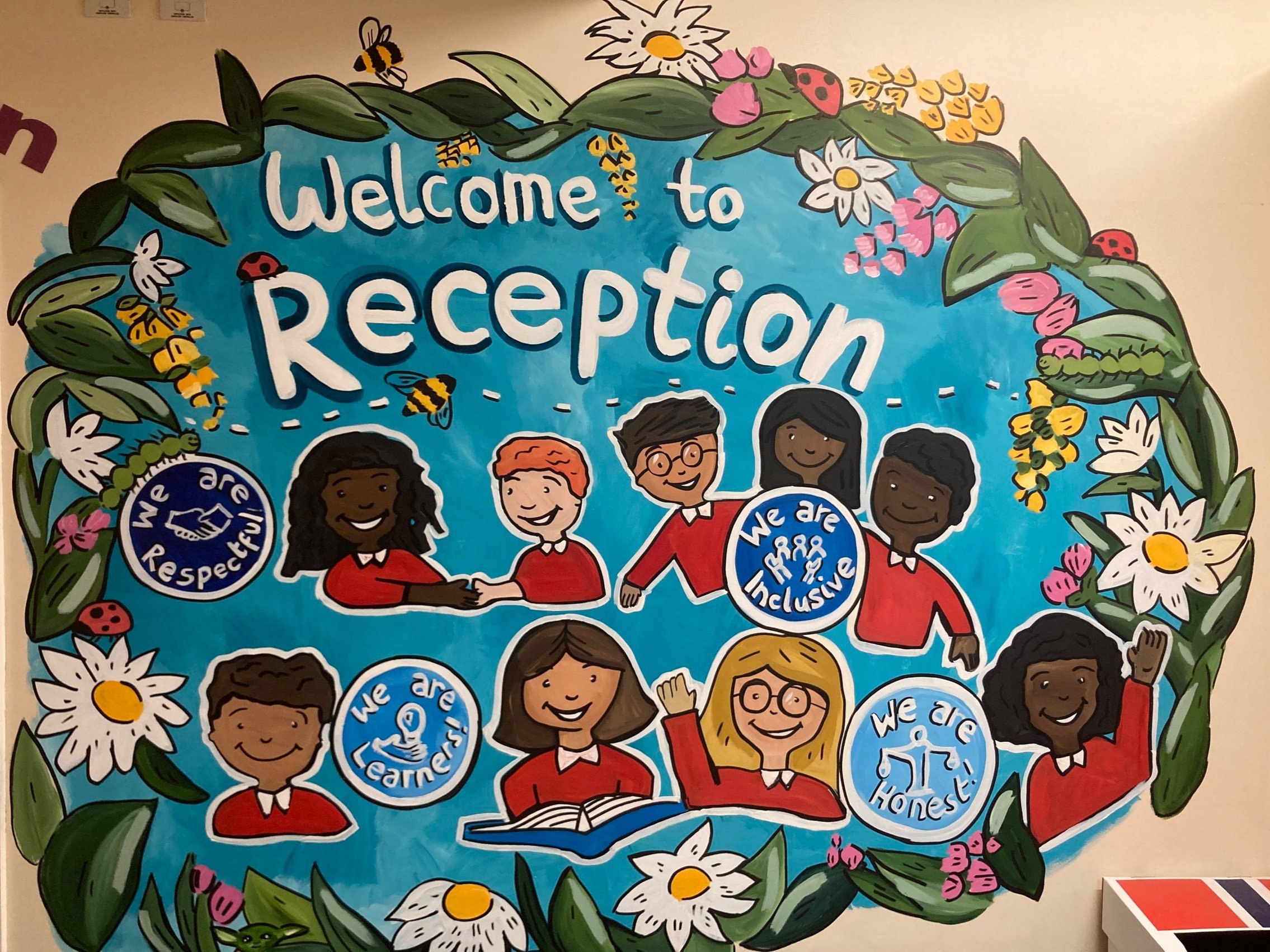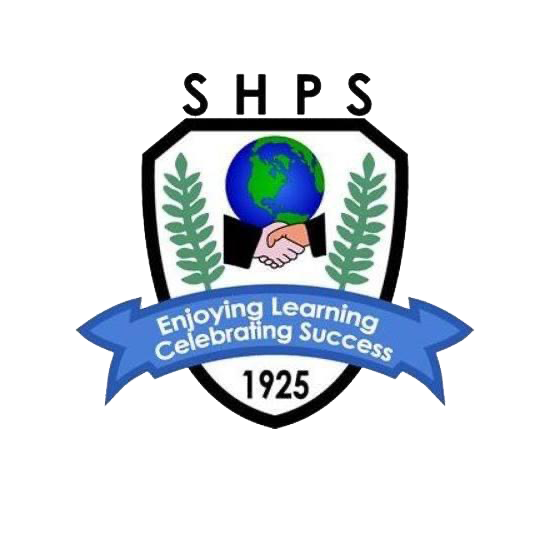
Early Years Foundation Stage
Structure
The Early Years Foundation Stage at Stoke Heath consists of:
Nursery A - for children aged 2-3 years (part time places)
Nursery B - for children aged 3-4 years (5 mornings or 5 afternoon places)
Reception (2 classes)
Limited wraparound places are offered in the Nursery provision, alongside paid 30-hour places where required.
Intent
We are Early Years at Stoke Heath!
Everyone in our EYFS is a learner who has their individual needs met through a bespoke and personalised curriculum designed to provide children with important foundational skills and knowledge that will later be enhanced and embedded in KS1.
We have the highest aspirations for every child and want children to develop a love for learning that continues throughout their educational journey.
Our children receive an education rich in language, wonder and memorable experiences that allows children's natural creativity and curiosity to flourish, alongside the purposeful acquisition of skills and knowledge.
Children and their families find a welcoming, nurturing & safe environment where all are welcomed and valued and our diversity is celebrated.
The EYFS Curriculum
The curriculum has been developed in accordance with the ‘The Statutory Framework for the Early Years Foundation Stage’ (2021). The framework includes 7 areas of learning and development that are equally important and interconnected. Three of these areas are known as the prime areas, Communication and Language, Physical Development and Personal, Social and Emotional Development and these are recognised as the main focus for learning in EYFS to provide children with the necessary skills to access the curriculum into Key Stage 1.
The specific areas are Literacy, Mathematics, Understanding the World and Expressive Arts and Design.
We have developed our own bespoke sequentially progressive curriculum, which enables children to build on key knowledge and skills throughout the EYFS. Each provision has clear learning targets showing the skills and knowledge that children will learn by the end of each year.
The curriculum is designed around key texts which provide an exciting stimulus for learning within each theme which last for 2 to 3 weeks. All three provisions within EYFS deliver the same over arching title which is then differentiated by the key text that is used. Through this method the children have an opportunity to embed and build on the knowledge and skills already learnt.
The main focus of the curriculum includes:
Developing a wide vocabulary
Developing gross and fine motor physical skills needed to control and manipulate tools
Promoting the enjoyment of reading and sharing stories and non-fiction texts
Acquiring key knowledge and skills needed to understand and manipulate numbers to 10
Capitalising on children’s natural curiosity and inquisitiveness about the world around them
Cultivating children’s curiosity about people and events within and beyond their living memory
Developing an appreciation of other people, their communities and their traditions
Enhancing children’s sense of responsibility for the care of their own environment and the impact it has on the whole world
Capitalising on children’s natural excitement for and freedom to express their thoughts, feelings and ideas as artists and musicians
Promoting the characteristics of effective learning so that children are equipped to access the learning into Key Stage 1
Teaching and Learning
We believe the key to young children learning with enjoyment and challenge is to learn through play. Carefully planned and purposeful experiences across all areas of learning are available to children throughout the day. This is balanced with group/adult led sessions which introduce new learning. The children then have the opportunity to practice and consolidate new knowledge and skills within the provision.
SEND and Inclusion
We believe that all children should feel included, secure and valued. We provide a happy, supportive and stimulating environment where all children have opportunities to be successful and in doing so develop a strong self-image and high self-esteem. We create an environment that fosters and develops children’s emotional, mental, social and spiritual well-being. Children develop warm and supportive relationships with others and quickly gain a sense of belonging.
Children learn in different ways and at different rates and our responses shape children’s attitudes to learning. We consider each child’s unique development, their individual interests and the way they learn and plan their learning accordingly. All children are included and diversity and differences are respected and celebrated. Children are encouraged to make choices and decisions within clear and consistent boundaries ensuring children become confident to assess their own risks and learn to protect themselves. Where a child may have a special educational need or disability, staff consider whether specialist support is required, linking with relevant services from other agencies, where appropriate. We believe that early identification and early intervention is vital for children who are demonstrating developmental delays, specific behaviours or experiencing difficulties settling into the provision. Through following the school ’s SEND policy, swift and appropriate action is taken, a working relationship with parents is formed and outside agencies are used if appropriate.
Positive Relationships
We pride ourselves on our positive relationships between staff and children, children and children, staff and parents and staff and staff. We place a huge emphasis and create time to build trusting relationships, supporting children in exploring and understanding their own and other feelings.
At Stoke Heath we recognise the importance of forming positive relationships with our families. We understand that an effective partnership between school and home will have a positive impact on children’s learning and development. We understand and respect that parents know their children better than anyone and always seek to work in partnership with parents to support children’s development and learning.
Our involvement of parents also includes:
A well-planned induction to all age groups
Inviting parents to a welcome evening to learn about the EYFS setting, curriculum and meet the staff in their child’s setting
Termly curriculum newsletters
Holding parent’s evenings twice yearly where the floor books are available for parents to see their child’s learning
Inviting parents into school events such as workshops, productions, stay and plays etc.
A friendly, open-door ethos ensuring staff are available to talk to parents at the beginning and end of the day.
Induction and Transition
We believe that creating a smooth transition into each provision is imperative if children are to settle quickly and make a positive start. We use a variety of strategies including:
Home visits for all children that are new to Stoke Heath School
Induction workshops for parents and carers
Stay and play visits
Staggered starts and a settling-in period for children starting at any point in the year
Liaising with Nurseries and Childminders for children new to Stoke Heath School
Transition opportunities for children moving from each year group within our own EYFS setting such as new teachers visiting the class to play and read stories with the children, regular visits to their new classrooms for all children but more so for SEND children
The floor books will follow the children to their new class in order to make links to the children learning in their new year group
Transition texts and rhymes will be planned as part of the end of the summer term that links to the start of the new academic year
Children will create a piece of art work to be displayed in their new classroom at the start of the academic year
Sharing key information to the next teacher at the end of the year verbally and by passing on the assessment folder to the new teacher
EYFS teaching and learning expectations will be in-line with the readiness required for the next year group and will be progressive over the year.
Year 1 teaching and learning expectations will be in-line with the readiness required from children transitioning moving from Reception to Year 1 and at the start of the new academic year will mirror the expectations set at the end of Summer in Reception.

